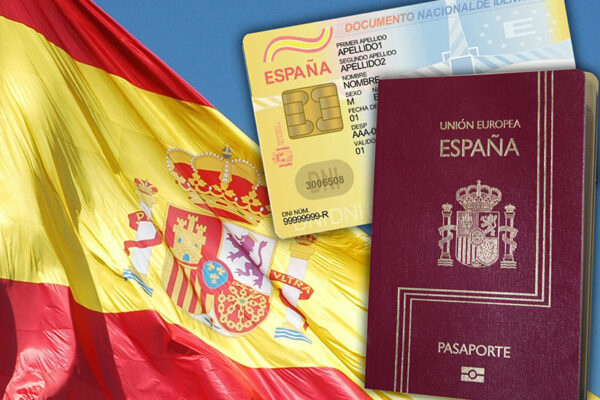Do you wish to immigrate to Spain? If so, you've come to the right place! Spain has long captured the imagination of those seeking a better quality of life, whether it's the sun-soaked coastlines, rich cultural traditions, or slower, more enjoyable pace of living. From professionals seeking a more work-life balance to retirees desiring comfort and charm, the country remains popular with people from different countries all over the world.
In fact, millions of foreign-born residents now call Spain home. If you're going to be studying, working, or even just living under the Mediterranean sun, you need to prepare for your move. If you take the right approach, settling in Spain can be as easy as exciting. Here, we'll walk you through what you need to know to make your dream of living in Spain a reality.
Benefits of Relocating to Spain
Here are some of the advantages of moving to Germany:
1. Lower Cost of Living
Spain and Portugal are the two popular destinations in Western Europe with the most affordable cost of living. It’s one of the reasons most people immigrate to Spain. You can have a decent life equivalent to that of high-ranking countries in northern and western Europe without having to pay as much. Spain has one of the lowest costs of living among developed nations worldwide, making it one of the most affordable destinations to live in Europe.
2. Great Quality of Life
Spain has a higher standard of living than many other nations because of its mild climate and lower cost of living. The quality of life in Spain is either better than or about the same as most nations listed on the Numbeo Quality of Life Index.
Spain makes up for some other nations' better rankings for quality with its more desirable environment and lower cost of living. But that's not all. In addition to having some of the best universal healthcare systems in the world, Spain has some of the lowest crime rates. This European country is among the top five countries with the longest life expectancy and has a very safe national healthcare system.
3. Good Real Estate Market
A good reason why you should immigrate to Spain? The real estate market! Moving to Spain offers many property options, including city flats, semi-detached townhouses, coastal villas, rural farmhouses, and urbanizations (purpose-built residential communities). You'll certainly find a home that fits your tastes for both size and style.
4 Comfortable Climate
Pleasant weather is one of Spain's main attractions, particularly in regions like Andalucía's Costa del Sol. It’s also one of the reasons most foreigners immigrate to Spain. Spain's coastal parts offer pleasant summers with lower humidity, and even its winters are warmer than most northern European nations, despite the country's different seasons and various wetter and colder locations.
5. Lively Culture and Community
Many Spanish citizens live the “al fresco lifestyle,” which promotes casual socializing. Generally speaking, Spanish people are quite hospitable and help foreigners feel accepted and included in their society. Spanish people are quite known for their love for cuisine and music, as well as their family-oriented beliefs.
How to Immigrate to Spain

If you want to migrate to Spain, you must first understand that you need a reason for doing so. More precisely, you need a legitimate immigration track that will allow you to stay in the country for more than three months. You can relocate to Spain in the following ways.
1. Moving to Spain for Family Reunification
A foreign citizen may relocate to Spain to join their family members or relatives. Applying for a family reunification visa is necessary to join a family member in Spain. As long as a family member resides in Spain, you have the right to stay and work there.
To get your Spain family visa, a family member already in Spain must apply for a family visa by submitting a request for family reunification at the Foreigners' Office (Oficina de Extranjería) in their locality. If you fall into any of the following categories, you may be eligible for a family visa to Spain:
- A spouse or partner of a Spanish resident who holds a valid residency permit.
- A minor offspring of a foreign national residing in Spain.
- A dependent adult child of a foreign national residing in Spain.
- A foreign resident's dependent parent who resides in Spain.
2. Moving to Spain to Study
You can decide to immigrate to Spain to further your studies. However, student visas are required for non-EU, non-EEA, and non-Swiss citizens who want to study in Spain. You must apply for both the student residency card and a student visa if the study program lasts over six months. To be eligible to apply, you must fulfill one of the requirements listed below.
- You are admitted to an accredited Spanish educational institution.
- You are admitted to a recognized Spanish research or training center.
- You have an agreement with a vocational training center, a public or private body or entity, or an organization where you will volunteer.
3. Moving to Spain for Work
If you're considering traveling to Spain for work, you have numerous visa options based on the type of job you are interested in. Here are the different types of visas you need for work.
Self-employment visa/Freelancer (Autonomo Visa): This visa is intended for freelance workers or self-employed people (age 16 and up), and it requires an effective business plan that shows how the venture will benefit Spain economically.
Employment visa: If you are over 16 and have a job offer from a Spanish company, you may apply for this kind of visa. Seasonal work is also permitted with this visa.
Au Pair visa: Students between the ages of 18 and 30 who have host families in Spain are eligible to apply for this type of visa. It permits domestic labor, including child care and chore assistance.
Entrepreneur visa: The entrepreneur visa is available if you intend to start an innovative business in Spain that could boost the country's economy.
Working holiday visa: Citizens of Canada, Australia, Japan, or South Korea, between 18 and 30, may apply for this visa.
4. Moving to Spain as a Digital Nomad
You can immigrate to Spain as a digital nomad. This has also become increasingly popular in recent years. Having a digital nomad visa is a prerequisite for getting into the country. You must fulfill the following visa requirements to be eligible for this immigration pathway:
- You must work remotely for a business that is not based in Spain and registered overseas.
- If you work for yourself, you must prove that most of your clients are located outside the country.
- You must have at least three years of professional experience and educational credentials.
- You have to make at least 200% of the minimum salary in Spain. Since the minimum wage in 2025 is €1,184, you must make at least €2,368 monthly.
- You must have a spotless criminal record.
5. Moving to Spain to Retire
You can relocate to Spain for retirement with sufficient money or an independent income. To retire in Spain, you must meet these requirements:
- You must have a minimum of €28,800 in annual income, pension, or savings.
- The yearly income criterion rises by €7,200 for each family member if you are bringing them.
- You must not be facing any criminal charges.
- You must be healthy.
- You can't work in Spain.
Documents Required for Immigration Visas
Here are the general documents you'll need if you plan to immigrate to Spain:
- National visa application form
- Valid passport
- Passport-size photographs
- Proof of a clear criminal record
- Biometric pictures
- Travel health insurance
- A medical certificate
- Visa fee payment receipt
- Proof of income
- Proof of work experience
- Proof of accommodation
- Educational qualifications
- Bank statements/Recent tax returns
- Employment contract
- Business registration certificate
- Birth certificate
- Marriage certificate or other proof of relations
- A letter of acceptance into a Spanish institution
How to Apply for Your Visa
Applying for a national visa (type D) at the closest Spanish embassy or consulate is the first step towards relocating to Spain. Here's a summary of the visa application process:
Schedule your visa appointment: Determine which Spanish embassy or consulate is closest to you and visit their website for information on how to schedule an appointment.
Gather the required documents: The embassy/consulate will most likely have provided a list of the necessary documents for each visa category. This is usually located in the “Consular services” section of the website. Before your meeting, ensure you have all of your documentation in order.
Go for your appointment: You must pay a visa processing fee and turn in all necessary paperwork on the day of your appointment. You must submit the application in person and give your fingerprints.
Wait for response: You should expect to hear back on your visa application within fifteen days to three months. If your visa is approved, you can relocate to Spain and begin the process of obtaining legal residency.
Immigration Visa Fees
Here are the prices for the Spanish immigration visas:
- Work visas range between $190 and $270 for US citizens and $90 for other citizens
- Family reunion visa costs $140 for US citizens and $90 for other nationalities
- Student visa costs $160 for US citizens and $90 for other nationalities
Settling in Spain
After obtaining your national visa and arriving in Spain, you must begin the process of settling in, which entails:
1. Get your residency permit.
This is the first step and maybe the hardest because obtaining residency in Spain depends on several factors. The residence can be either temporary or permanent, and it can be of three types: student, entrepreneur, or highly qualified professional. Depending on your eligibility, you get to choose from any of them, but to live in the nation lawfully, you must finish this process.
2. Find accommodation
Now that you have your residency card, you can decide where to rent. However, locating a property in Spain is difficult, and to rent a place properly, you'll need many documents throughout the process.
3. Register with Social Security
Social Security provides free health care, pensions, and other benefits for those living in Spain. Depending on your specific situation in the country, several registration methods are available, so consider your options before relocating to Spain.
4. Get an NIE
Any foreigner living in Spain is identified by their NIE (Foreigner Identity Number). It is comparable to the DNI (National Identity Document) for Spanish nationals. Be sure to prioritize this number because you will need it to complete most of the country's formalities, such as opening a bank account or obtaining health insurance.
5. Get a TIE
The TIE (Foreigner Identity Card) is a document that verifies your legal right to stay in Spain. It displays your photo, details, and the sort of residency you hold in the country. The TIE and the NIE are not similar, despite common misconceptions. The TIE validates that you are a legal resident of Spain, whereas the NIE is simply an administrative identity number.
6. Register for Health Insurance
If you immigrate to Spain for work, your employer will immediately enroll you in the national health insurance program (Sistema Nacional de Salud – SNS). However, retirees, independent workers, and digital nomads have the option of self-registration or private insurance.
Private health insurance is popular among foreigners because it provides access to private hospitals and other perks. It's also typically easier to use and more familiar.
Conclusion
Moving to Spain gives you more than just a change of scenery; it's a chance to experience life with color, culture, and warmth. While relocating requires planning and patience, the outcome is gratifying. From vibrant cities to coastal escapes, Spain has a place for everyone. With the right guidance and preparation, you can make the transition confidently and start enjoying all that this beautiful country offers.
















